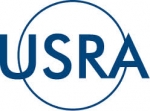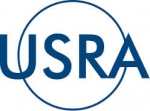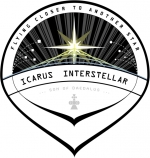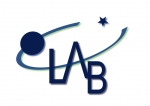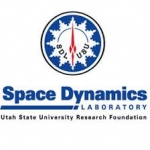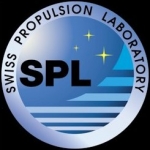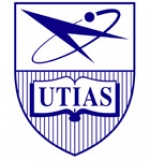Displaying items by tag: research center
USRA Division of Space Life Sciences (DSLS)
The USRA's Division of Space Life Sciences (DSLS) supports NASA's needs for understanding and counteracting the physiological changes that accompany space flight.
Based at USRA Houston, the DSLS manages extramural research programs, administers educational programs, coordinates a visiting/staff scientist program, and enhances collaboration between NASA and academic institutions through an extensive series of conferences, workshops, and seminars. This USRA division was established in 1983 as the Division of Space Biomedicine and facilitates participation of the university community in biomedical research programs at the NASA Johnson Space Center (JSC).
Universities Space Research Association (USRA)
The Universities Space Research Association (USRA) is an independent, nonprofit research corporation where the combined efforts of in-house talent and university-based expertise merge to advance space science and technology.
USRA works across disciplines including biomedicine, planetary science, astrophysics, and engineering and integrates those competencies into applications ranging from fundamental research to facility management and operations. USRA engages the creativity and authoritative expertise of the research community to develop and deliver sophisticated, forward-looking solutions to Federal agencies and other customers - on schedule and within budget.
USRA provides a mechanism through which universities can cooperate effectively with one another, with the government, and with other organizations to further space science and technology, and to promote education in these areas. Its mission is carried out through the institutes, centers, divisions, and programs. Administrative and scientific personnel now number about 420. A unique feature of USRA’s management is its system of standing panels of technical experts, drawn from the research community, to provide oversight for USRA’s institutes, centers, divisions and programs.
The Helmholtz Centre for Environmental Research (UFZ)
The Helmholtz Centre for Environmental Research - UFZ
The centre studies the complex interactions between humans and the environment in cultivated and damaged landscapes. The scientists develop concepts and processes to help secure the natural foundations of human life for future generations.
It was established in 1991 and has more than 1,000 employees in Leipzig, Halle/S. and Magdeburg.
The main locations are in Leipzig, Halle and Magdeburg.
Icarus Interstellar
Icarus Interstellar is a research organization dedicated to achieving interstellar Flight by 2100.
The mission of Icarus Interstellar is to realize interstellar flight before the year 2100. We will accomplish this objective by researching and developing the science and the technologies that will make interstellar flight a reality, igniting the public's interest, and engaging with all those prepared to invest in interstellar exploration.
Institute for Gravitational Research
The Institute for Gravitational Research of the University of Glasgow, United Kingdom, is a research center dedicated to the subject of gravitational waves.
The institute is part of the School of Physics and Astronomy. The work of this institute is concentrated on the development of detectors to search for gravitational waves from astrophysical sources. The main areas of research are precision novel interferometric techniques and the development of systems of ultra low mechanical loss for the suspensions of mirror test masses.
The group is also involved in the space-based LISA mission as well as data analysis activities within the LIGO Scientific Collaboration.
Laboratoire d'Astrophysique de Bordeaux (LAB)
The Laboratory of Astrophysics of Bordeaux (LAB) is a French research centre.
It is a joint research unit of CNRS and the University Bordeaux 1 Science and Technology. It is an integral part of the Aquitanian Observatory for the Sciences of the Universe.
The main missions are :
- international research in the fields of astronomy and astrophysics
- basic and continuing training
- public outreach
The laboratory is composed of researchers and teacher-researchers, engineers, technicians and administrative staff, PhD students and post-docs.
Space Dynamics Laboratory, Utah Univ.
The Space Dynamics Laboratory (SDL) is a not-for-profit unit of the Utah State University Research Foundation.
SDL's mission is to solve technical challenges faced by the military, science community, and industry through:
- Serving MDA and the DoD as the University Affiliated Research Center (UARC) for electro-optical sensor systems research and development.
- Designing and delivering electro-optical and space environment sensors and subsystems for over 400 rocket-borne and space-based payloads.
- Pioneering efficient and effective calibration and characterization techniques and facilities.
- Innovating CubeSat busses and small-scale components that provide large-scale benefits to the customer.
- Enabling significant advances in data compression, processing, and exploitation.
- Developing real-time reconnaissance data visualization hardware and software for operational military applications.
Space Research & Planetary Sciences - University of Bern
The Space Research & Planetary Sciences division, at the University of Bern, is a Swiss research centre.
Its research program concentrates on topics related to the history, origin and early evolution of planetary systems. By means of in situ measurements, remote sensing observations, laboratory analysis, and numerical modeling, we investigate our own solar system with its small bodies (comets and asteroids), its planets and their atmospheres as well as the newly discovered extra-solar planets to unravel the physical processes underlying the formation and evolution of these systems. These investigations also include the past and present interaction of the Sun with magnetospheres and atmospheres with the Earth and with comets.
Swiss Propulsion Laboratory
The Swiss Propulsion Laboratory (SPL), founded in autumn 1998, is running integrated programs focusing on research and development of space-technology in Switzerland.
Objectives and Strategies
SPL aims to develop, build and run reasonable priced systems to transport small payloads into a low-earth orbit (LEO). Old and established paths are intentionally renounced in order to envisage new and innovative concepts covering impacts on our environment as much as possible.
Involving external facilities and inviting other organizations to participate allows SPL to achieve its objectives. The components will be developed in a joint effort of SPL, interested universities, graduate schools and Switzerland precision industry. SPL will provide the required co-ordination of all involved parties, for example by extracting and forwarding precisely defined technical problems to educational institutions, thereby enabling them to effectively take part in space-technology oriented "applied science".
University of Toronto Institute for Aerospace Studies
The University of Toronto Institute for Aerospace Studies (UTIAS) is an advanced research facility for aeronautics and aerospace engineering.
Its activities in the apce domain cover:
- Spacecraft Dynamics/Control and Microsatellites
- Space Robotics
- Space Mechatronics
- Space Flight Laboratory: Microsatellite Systems
- Autonomous Space Robotics
- Dynamic Systems
- Pervasive Autonomy


